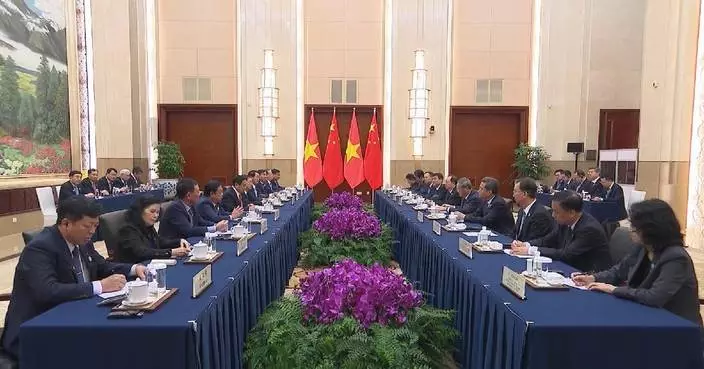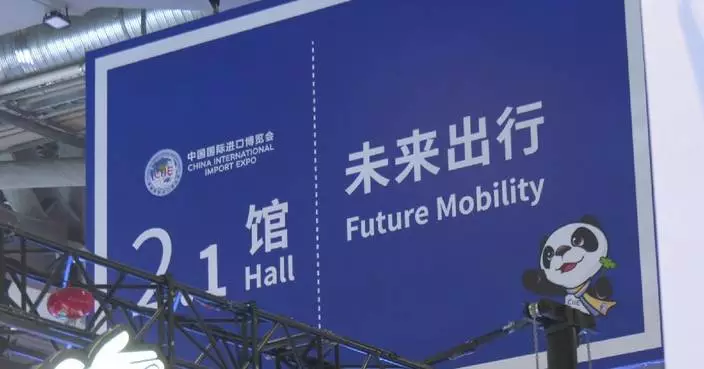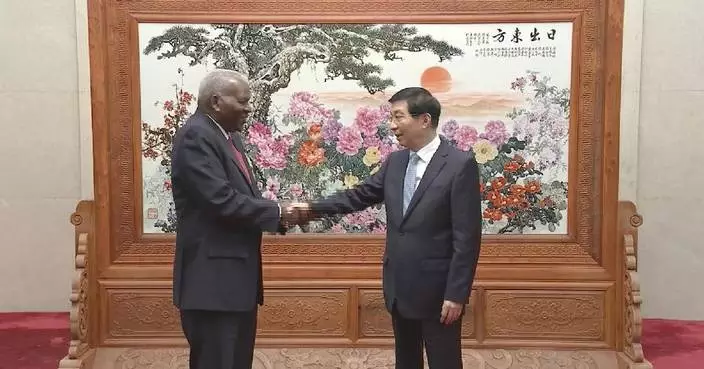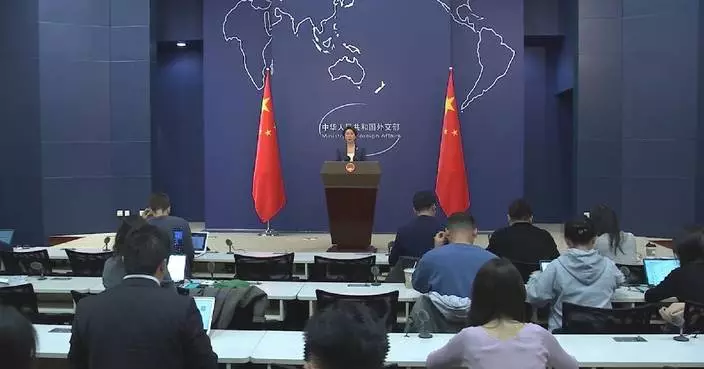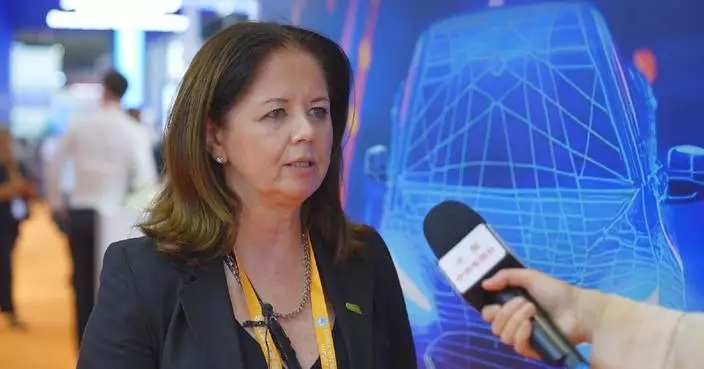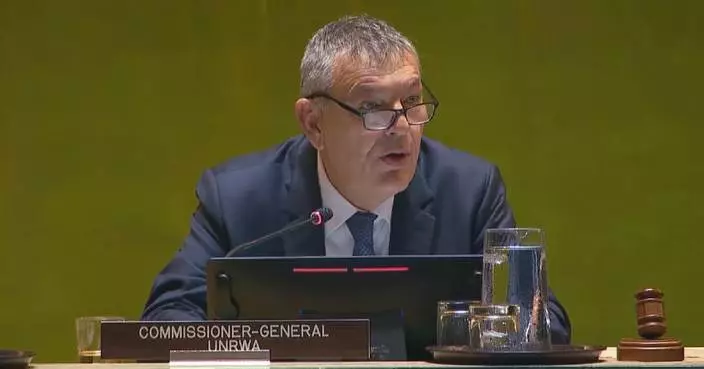CEO of Airbus China Xu Gang has stressed the company's commitment to facilitating the green transfer of global civil aviation industry via its innovative products displaying at the China International Import Expo (CIIE), while expressing optimism in China's aviation market as a significant driver of global aviation growth.
Airbus, one of the world's major passenger aircraft manufacturers, participates in the seventh CIIE in Shanghai, marking the second time it has had an independent booth at the expo. It showcases the models of its latest environmentally friendly aircraft, including the A330neo and A350, aiming to promote decarbonization and green development in the global civil aviation industry.
"These aircraft represent the latest generation of Airbus products, generally featuring carbon reductions compared to the previous generation, with emissions lowered by 20 percent to 25 percent," said Xu, also executive vice president of Airbus.
Despite the aviation industry being considered one of the most challenging sectors for decarbonization, sustainable aviation fuel (SAF) is seen as an effective solution. Xu believes that China excels in green energy and policymaking, giving it a unique advantage in SAF development.
"China can play a unique role in offering its solutions to the world, making China's contributions boost global decarbonization. Our future goal is to achieve 100-percent SAF by 2030 through research and development, enabling engines to achieve equivalent energy output using SAF without blending traditional aviation fuel," Xu said.
In 2008, Airbus launched its first aircraft assembly line outside Europe in north China's Tianjin, where over 700 aircraft have been produced to date. The construction of a second assembly line is currently underway and is set to be operational by early 2026, when the output of the Tianjin assembly line will account for 20 percent of global production.
"This year, 25 percent of the aircraft from the Tianjin assembly line have been delivered to non-Chinese airlines, including airlines not only from nearby Asian countries but also from regions such as the Middle East and Europe," Xu said.
At present, Airbus holds a 55-percent market share in the Chinese aviation market.
With the development of domestic aircraft manufacturers such as the Commercial Aircraft Corporation of China (COMAC), China's aviation market is experiencing new competition.
"Therefore, we also believe that in the future, the Asia-Pacific market, especially the Chinese market, has ample capacity to accommodate two to three competitors vying in the aviation industry. In fact, we believe that healthy competition is advantageous for the industry's overall development, particularly benefiting our airline's end customers significantly," Xu said.
When it comes to China's aviation market, Xu's keyword is "optimistic."
"We have always been very optimistic about the Chinese market. We predict that in the next 20 years, the incremental focus of the global aircraft market will be in the Asia-Pacific region. Within the entire Asia-Pacific market, China is expected to account for half of it. This means that we believe China will continue to be an incremental market in the global aviation sector over the next 20 years, accounting for 20 percent of the market share," Xu said.
The seventh CIIE is taking place in Shanghai from Tuesday to Sunday.
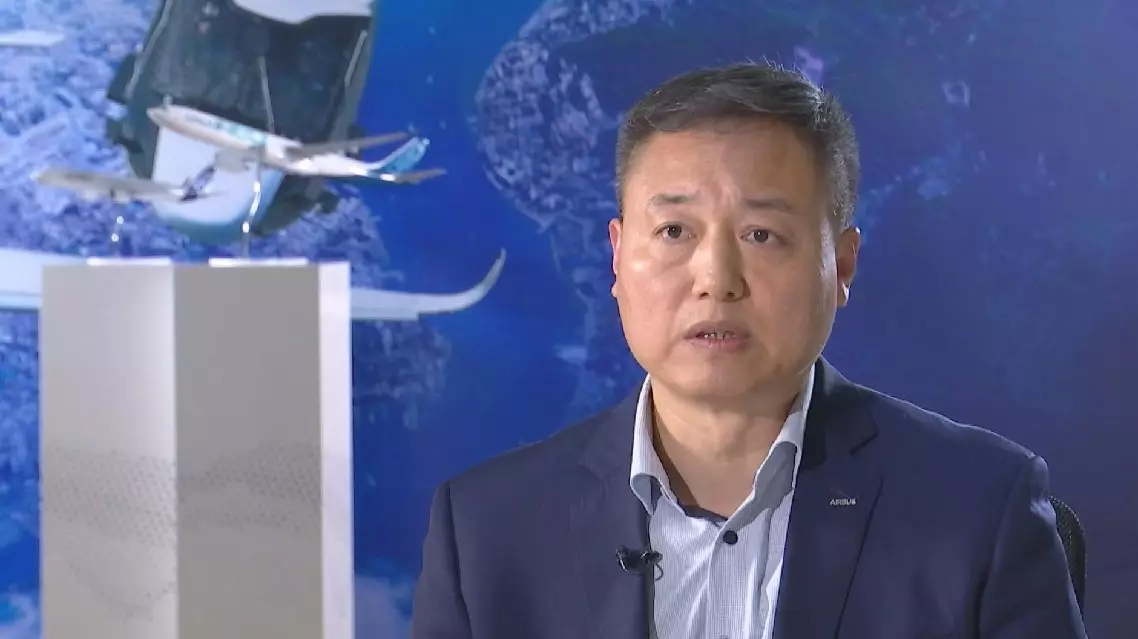
Airbus stresses commitment to green transfer, optimism in China market



